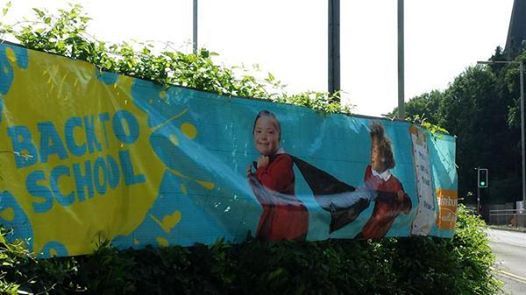 |
A friend gave Natty this figurine
when she was born |
I had never really thought too long and hard about the reasons behind the names we chose to give our girls, until Downs Side Up found itself in the public eye.
We had a rough shortlist of names we liked during both pregnancies, and then waited to meet our babies before deciding which names suited them. As a parent you concentrate on the child, their personality, their needs, breastfeeding, medical issues, (sleep!) ...and then suddenly, one day, hey presto, they just 'are' the name you gave them.
Of course when Natalia was born, the medical complications were considerable, and we found ourself in a deep dark place of shock as her Down's Syndrome had not been diagnosed antenatally. She was Christened at 3 days old (or so, this time is a numb blur) and we quickly picked a name before that occasion. Her due date was Christmas Eve and, despite being born slightly early, we chose a name that comes from the root 'natale' meaning 'birth' and 'Christmas'. Natalia it was then. The first ingredient.
To be honest, we feared she would die at that time. So the middle name Hope was added to the mix.
Some weeks later, when our little, frail new bundle was allowed home, a local GP requested to be her doctor, as his Grandson also boasts an extra chromosome. I walked into his surgery for the first time that cold January morning with the tiny baby I still could not look at without feeling overwhelmed and afraid. He simply beamed at us and confidently said, "right, now let me hold this beautiful baby I've heard all about." As I passed her into his arms, he looked at her kindly, smiled and softly said, "Hello Natty."
The nickname was coined. It found her. It suited her, and let's face it, it's a lot easier to get her gums around than 'Natalia' (what were we thinking?). It's also fairly unique, save for a great Reggae artist of the same name. I like the Caribbean overtones, it's catchiness. It's a happy, jolly onomatopoeic kind of word that captures her essence. Short, but very sweet, and always hand in hand with Hope.
Of course we knew all this history, our own private, fond, family nickname genisis, born of affection. However, an online newspaper article reader, without giving her cutting comment a second thought, piped up "Pretty little model, but why did her parents give her such an ugly name. It sounds like an insect!" Most tellingly, and ironically, the critic kept herself (just a hunch) anonymous!
But always there was Hope. Was it secondary, a middle name given as an after thought? No. It was at the very core, the vital ingredient. 'Natty' is the fun, first impression, the outer packaging. 'Hope' is what she is made of inside, the delectable soft centre. What lasts and endures, and what radiates out to those around her.
And once you choose hope, anything is possible.
























